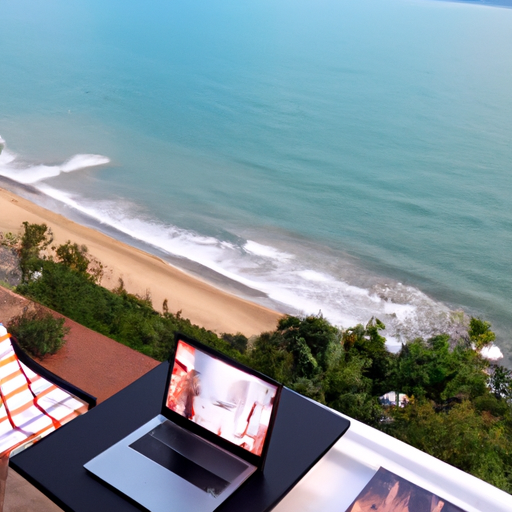
Streamlining Sales Processes with B2B CRM: Key Strategies for Hotel Sales Productivity
Maximizing Hotel Sales Productivity with B2B CRM: 5 Effective Strategies
In today’s competitive hospitality industry, hotels are constantly looking for ways to increase their sales productivity. One effective tool that can help streamline sales processes and boost revenue is a B2B CRM (Customer Relationship Management) system. By implementing the right strategies, hotels can maximize their sales productivity and stay ahead of the competition.
First and foremost, it is crucial for hotels to understand the importance of data management. A B2B CRM system allows hotels to collect and organize valuable customer data, such as contact information, preferences, and past interactions. By effectively managing this data, hotels can gain insights into their customers’ needs and preferences, enabling them to tailor their sales strategies accordingly. This data-driven approach can significantly improve sales productivity by targeting the right customers with the right offers at the right time.
Another key strategy for maximizing hotel sales productivity with B2B CRM is automating routine tasks. With a CRM system in place, hotels can automate repetitive tasks such as sending follow-up emails, generating reports, and updating customer records. By automating these tasks, sales teams can save time and focus on more important activities, such as building relationships with customers and closing deals. This not only increases sales productivity but also enhances customer satisfaction by ensuring timely and personalized communication.
Furthermore, effective lead management is essential for driving hotel sales productivity. A B2B CRM system enables hotels to track and manage leads throughout the sales process, from initial contact to conversion. By assigning leads to the right sales representatives and tracking their progress, hotels can ensure that no potential opportunity falls through the cracks. This systematic approach to lead management not only increases sales productivity but also improves the overall efficiency of the sales team.
In addition to lead management, effective pipeline management is crucial for maximizing hotel sales productivity. A B2B CRM system allows hotels to visualize their sales pipeline, providing a clear overview of all ongoing deals and their respective stages. By monitoring the pipeline, hotels can identify bottlenecks and take proactive measures to accelerate the sales process. This proactive approach not only increases sales productivity but also enables hotels to forecast revenue more accurately and make informed business decisions.
Last but not least, effective collaboration is key to maximizing hotel sales productivity with B2B CRM. A CRM system allows sales teams to collaborate seamlessly by sharing customer information, tracking each other’s activities, and coordinating efforts. By fostering collaboration, hotels can ensure that all team members are aligned and working towards common goals. This not only improves sales productivity but also enhances the overall customer experience by providing a consistent and personalized service.
In conclusion, a B2B CRM system can be a powerful tool for maximizing hotel sales productivity. By implementing effective strategies such as data management, task automation, lead and pipeline management, and collaboration, hotels can streamline their sales processes and boost revenue. With the right approach, hotels can stay ahead of the competition and provide exceptional service to their customers. So, if you’re looking to maximize your hotel sales productivity, consider implementing a B2B CRM system and start reaping the benefits today.
Leveraging B2B CRM to Enhance Hotel Sales Performance: 5 Proven Tactics

Maximizing Hotel Sales Productivity with B2B CRM: 5 Effective Strategies
In today’s competitive hospitality industry, hotels are constantly looking for ways to enhance their sales performance and increase revenue. One effective tool that has gained popularity among hoteliers is B2B CRM, or Customer Relationship Management. B2B CRM allows hotels to manage their relationships with corporate clients and travel agencies more efficiently, resulting in improved sales productivity. In this article, we will explore five proven tactics for leveraging B2B CRM to enhance hotel sales performance.
First and foremost, it is crucial to have a comprehensive understanding of your target market. By utilizing B2B CRM, hotels can gather valuable data on their corporate clients and travel agencies. This data includes information such as booking patterns, preferences, and past interactions. By analyzing this data, hotels can identify trends and patterns, allowing them to tailor their sales strategies to meet the specific needs and preferences of their clients. This targeted approach not only increases the chances of securing bookings but also enhances customer satisfaction.
The second strategy involves streamlining the sales process. B2B CRM provides hotels with a centralized platform to manage all their sales activities. This includes tracking leads, managing contracts, and monitoring sales performance. By having all this information in one place, hotel sales teams can work more efficiently, saving time and effort. Additionally, B2B CRM allows for automation of repetitive tasks, such as sending follow-up emails or generating reports. This automation frees up valuable time for sales teams to focus on building relationships and closing deals.
The third tactic is to prioritize customer engagement. B2B CRM enables hotels to maintain regular communication with their corporate clients and travel agencies. This can be achieved through personalized email campaigns, targeted promotions, or even social media interactions. By staying engaged with their clients, hotels can build stronger relationships, increase brand loyalty, and ultimately secure more bookings. B2B CRM also allows for tracking and analyzing customer interactions, providing valuable insights into customer preferences and behavior.
The fourth strategy involves leveraging data analytics. B2B CRM provides hotels with powerful reporting and analytics capabilities. By analyzing data on sales performance, conversion rates, and customer behavior, hotels can identify areas for improvement and make data-driven decisions. For example, if a particular sales strategy is not yielding the desired results, hotels can adjust their approach based on the insights provided by B2B CRM. This data-driven approach ensures that hotels are constantly optimizing their sales efforts and maximizing revenue potential.
Lastly, it is essential to integrate B2B CRM with other hotel systems. By integrating B2B CRM with the hotel’s property management system, revenue management system, and other relevant systems, hotels can achieve a seamless flow of information. This integration allows for real-time updates on room availability, pricing, and other important details. This ensures that the sales team has the most up-to-date information at their fingertips, enabling them to provide accurate and timely responses to client inquiries. The integration of B2B CRM with other systems also eliminates the need for manual data entry, reducing the risk of errors and improving overall efficiency.
In conclusion, B2B CRM is a powerful tool that can significantly enhance hotel sales performance. By understanding the target market, streamlining the sales process, prioritizing customer engagement, leveraging data analytics, and integrating with other hotel systems, hotels can maximize their sales productivity and increase revenue. With the competitive nature of the hospitality industry, hotels that embrace B2B CRM will have a distinct advantage in securing corporate clients and travel agency partnerships. So, if you want to take your hotel sales to the next level, consider implementing these five effective strategies with B2B CRM.
Boosting Hotel Sales Efficiency with B2B CRM: Top Strategies for Success
Maximizing Hotel Sales Productivity with B2B CRM: 5 Effective Strategies
In the highly competitive hotel industry, maximizing sales productivity is crucial for success. With the advent of technology, hotels now have access to powerful tools that can significantly boost their sales efficiency. One such tool is B2B CRM (Customer Relationship Management) software. By leveraging the capabilities of B2B CRM, hotels can streamline their sales processes, improve customer relationships, and ultimately increase revenue. In this article, we will explore five effective strategies for maximizing hotel sales productivity with B2B CRM.
First and foremost, it is essential to have a comprehensive understanding of your target market. B2B CRM allows hotels to gather and analyze valuable data about their customers, such as their preferences, booking patterns, and spending habits. By utilizing this information, hotels can tailor their sales strategies to meet the specific needs and desires of their target market. For example, if the data shows that a significant portion of your customers prefer booking through travel agents, you can allocate more resources towards building strong relationships with these agents.
Secondly, B2B CRM enables hotels to automate and streamline their sales processes. Manual tasks such as data entry, follow-ups, and reporting can be time-consuming and prone to errors. With B2B CRM, these tasks can be automated, freeing up valuable time for your sales team to focus on building relationships and closing deals. Additionally, B2B CRM provides real-time visibility into the sales pipeline, allowing sales managers to track the progress of each deal and identify bottlenecks. This visibility enables proactive decision-making and ensures that no opportunities slip through the cracks.
Another effective strategy for maximizing hotel sales productivity with B2B CRM is to implement a lead scoring system. Lead scoring assigns a numerical value to each lead based on their likelihood to convert into a paying customer. B2B CRM allows hotels to define their own lead scoring criteria, taking into account factors such as lead source, engagement level, and budget. By prioritizing leads with higher scores, hotels can focus their efforts on the most promising opportunities, increasing their chances of closing deals and generating revenue.
Furthermore, B2B CRM facilitates effective communication and collaboration within the sales team. With features such as shared calendars, task management, and document sharing, B2B CRM ensures that everyone is on the same page and working towards a common goal. Sales representatives can easily access and update customer information, eliminating the need for time-consuming back-and-forth communication. This seamless collaboration not only improves efficiency but also enhances the overall customer experience, as sales representatives can provide personalized and timely responses to customer inquiries.
Lastly, B2B CRM enables hotels to track and measure the effectiveness of their sales strategies. By analyzing key performance indicators (KPIs) such as conversion rates, average deal size, and sales cycle length, hotels can identify areas for improvement and make data-driven decisions. B2B CRM provides comprehensive reporting and analytics capabilities, allowing hotels to gain valuable insights into their sales performance and adjust their strategies accordingly. This continuous improvement cycle ensures that hotels are constantly optimizing their sales processes and maximizing their revenue potential.
In conclusion, B2B CRM is a powerful tool for maximizing hotel sales productivity. By understanding your target market, automating sales processes, implementing lead scoring, fostering collaboration, and tracking performance, hotels can leverage the capabilities of B2B CRM to boost their sales efficiency and drive revenue growth. In today’s competitive landscape, embracing technology and utilizing tools like B2B CRM is essential for staying ahead of the competition and achieving long-term success.


